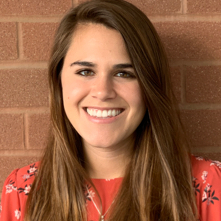The holidays are a lovely time of year to spend time with your loved ones. Especially after 2020 when many of us were isolated from the people we care about. In the midst of eating disorder recovery, it can be difficult to enjoy the holiday season because many of the festivities are centered around food. Not to mention the possibility of seeing diet centered friends and family. This blog will focus on tips to navigate the holiday season in eating disorder recovery. We’ll also discuss why working with an eating disorder nutritionist or an eating disorder recovery specialist is important.
What is an Eating Disorder?
Let’s start by defining what an eating disorder is. An eating disorder is a disruption to an individual’s relationship with food. An eating disorder causes unwelcome negative thoughts and behaviors when around food and food related events. For instance, dinner parties, happy hours, or family gatherings. You can learn more about the types of eating disorders from NEDA’s website.
When in recovery from an eating disorder, it is important to work with an eating disorder recovery specialized team. This includes an eating disorder dietitian, a therapist, and a physician. Courage to Nourish offers eating disorder recovery nutrition in College Park and Columbia, MD, Alexandria, VA, Pennsylvania and Colorado. We offer both in person and virtual appointments. We’d love to share more information about us and our services. We’d be honored to support you in your eating disorder recovery. Click here to contact us.
Why are the holidays difficult?
Individuals in eating disorder recovery may find themselves struggling during the holiday season. It can be helpful to discuss these emotions with an eating disorder specialist. Below are some topics to discuss. Consider whether or not you resonate with any of these!
Spending more time with friends and family
While many of us find spending time with loved ones important and enjoyable, it can also trigger thoughts and urges about food and body image. Both things can be true. We can look forward to seeing close family. But we can also worry about how their relationships with food might affect us. It’s very possible certain family members are dieting or talk negatively about food and body. It’s also possible you’re seeing friends who you haven’t seen in awhile. This can spark comparisons.
Food focused events
Holiday parties. Family gatherings. Dinner parties. Happy hours with friends. These are just a few of the food-related events that often pop up during the holiday season. Attending these events may increase eating disorder thoughts, urges and behaviors. Give yourself a bit of compassion if this happens to you. And consider talking to your eating disorder dietitian about preparing for these events.
More relaxation time
Self-care and relaxation is necessary! However, for some, more downtime can lead to an increase in anxious thoughts. Especially for those who like to keep their schedules busy. It’s important for us to check in with ourselves and observe how downtime affects us (both positively and negatively)! This is a great opportunity to bring in some awareness and mindfulness. And also notice if we’re trying to fill our time with unhealthy coping skills. Such as exercising, restricting, binging or other eating disorder behaviors.
Revisiting triggering environments
Many of us travel during the holidays. So, we might be revisiting spaces that hold certain memories and emotions. For those struggling with an eating disorder, it can be difficult to revisit certain places associated with being sick. It can be very to normal to feel overwhelmed when heading back home after college or going to a vacation home or staying over a friend’s house. Especially if symptoms and behavior use was heightened at the time of visiting these places. I really like this blog by Kylie Mitchell. She is recovered from an eating disorder and talks about her experience with this. She includes an awesome activity that I often use with clients. The blog includes a scripture reading and is spiritual in places. If that isn’t your thing, totally fine, just skip that part!
Tips to navigate the holidays in eating disorder recovery.
So, what are some tips to navigate the holiday season and support your eating disorder recovery? Here are some thoughts! And feel free to chat with your eating disorder dietitian about these ideas!
1. Create a holiday plan.
Some clients find it helpful to walk through a day to day plan. Now, we want to make sure to include flexibility in the plan, as things change. Consider talking about the following things with an eating disorder specialist and dietitian.
- Who is going to be your support system when the ED is loud? Fo rexample, it could be a parent, partner, cousin, sibling, or friend.
- Who can you sit next to at the holiday table who will support you while eating?
- Do you need to pack snacks?
- What will the general “flow” of the day look like? For instance, think about: What times are meals? What will you need to eat before/after a holiday to assure you’re eating enough?
- What are some signs that you’re feeling overwhelmed? What happens next?
2. Identifying potential triggers
In addition to creating a holiday plan, it might also be helpful to identify potential triggers. These triggers could be a person, a location or a situation. Now, during the holidays, it might not be realistic to avoid triggers. But, we can talk about how to process and cope. Consider creating a list with an eating disorder specialist of triggers and coping strategies.
3. Communicate your boundaries
No one likes listening to diet talk at the table, right? You have permission to communicate your diet talk boundaries to your loved ones. Feel free to change the topic if diet talk begins. Or feel free to outright, nicely say that you would prefer to not talk about weight, dieting, or exercising.
Don’t want to go to all the holiday parties? You have permission to decline those invites. Make plans with the people you really want to see outside of party time.
Need a day to rest from all the holiday festivities? You have permission to take a break. To say no. You know what your body needs best.
4. Practice coping tools
In stressful situations, it is normal for our emotions to be heightened. The holidays can be one of these stressful times, especially for someone in recovery from an eating disorder. We’re spending more time with family and friends, there’s food present and we might be off of our normal routine. Coping tools come in handy here. Review coping tools with an eating disorder specialist. Discuss when they will be appropriate to use.
5. Check-in with your hunger/fullness/cravings
Are you experimenting with intuitive eating during the holidays? Here is a reminder to check in with hunger, fullness and cravings during mealtime (and in between!). A reminder that even if you are full it can be totally normal to continue eating. Especially if there is yummy food and fun company present!
6. Practice gratitude
Did you know that writing down things you’re grateful for can actually improve mood? Perhaps take a moment in the evening to jot down 3-5 things you’re grateful for. Some examples include: spending time with pets (or human loved ones)!, traveling, having down time, enjoying a warm latte by the fire, watching your favorite Christmas movie…etc. See how you feel before and after practicing gratitude!
7. Keep meeting with your dietitian/nutritionist and going to therapy just like normal
Even during the holidays, it’s extremely important to meet with your team. Just like normal. Your eating disorder dietitian and therapist will be able to support you during this time. It’s possible you will need more space and time to process behaviors/urges, thoughts, and feelings that come up during the holidays. Your eating disorder dietitian can support you in navigating the tricky food stuff that comes up.
8. Take a break
Many of us get a couple days off during the holidays. Enjoy this time to do some things that you love. Or perhaps pick up a new hobby! It can be nice having the world slow down just a little bit.
9. Focus on the meaning of the holidays
At the end of the day, the holidays are about spending time with loved ones and/or taking time for yourself. Take some time to decide what the holidays mean to you. Many of us have complicated relationship with our families, so maybe it’s more about friendship or travel or taking a breather. On the flip side, many of us are close with our families and may not see them often. So this is a great time to reflect on how we appreciate them. Whatever it is, focus on that instead of the food.
A reminder that we are accepting new clients. Courage to Nourish is located in Alexandria, VA, College Park, MD and Columbia, MD. We also see clients virtually in Colorado and Pennsylvania. Please contact us if you have any questions about working with us! We’d love to support you.

Helping my clients cultivate meaningful connections and interests outside of their eating disorder is a true passion of mine. I like to think my clients and I are on a team to navigate recovery. I love working with high school and college students as well as athletes seeking to have a better relationship with exercise. I am a proud anti-diet dietitian and work with my clients through a Health At Every Size © and intuitive eating framework.


